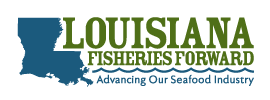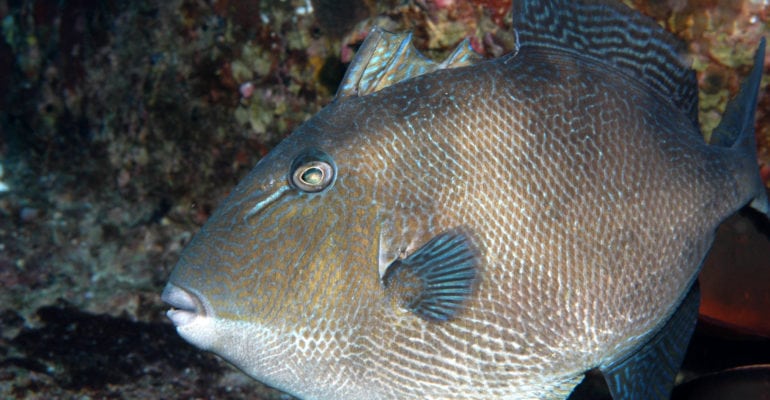The Gulf of Mexico Fishery Management Council met in Biloxi, Mississippi, on October 24-27, 2022. The meeting began with the Council populating its’ Council Committees through August 2023. NOAA Fisheries Assistant Administrator Janet Coit provided remarks to the Council and stakeholders on agency priorities. Additionally, the Council heard presentations on the Joint Council Workgroup on Section 102 of the Modern Fish Act, Deepwater HorizonFish Restoration and Future Restoration Planning, and Wind Energy Development in the Gulf of Mexico. The following is a summary of the Council’s actions:
Greater Amberjack
The Council took final action on Reef Fish Amendment 54: Modifications to Greater Amberjack Catch Limits and Sector Allocations. The most recent greater amberjack stock assessment (SEDAR 70 2020) determined that greater amberjack is both overfished and experiencing overfishing. The stock is scheduled to rebuild by 2027. The Council is obligated to end overfishing and revise the rebuilding plan for greater amberjack to meet its rebuilding target.
Additionally, new recreational catch estimates collected using the Marine Recreational Information Program’s (MRIP) Fishing Effort Survey (FES) indicated that recreational landings are greater than previously estimated. This revises the understanding of historical participation by both sectors and prompted reconsideration of sector allocations.
The Council chose to revise the allocations between commercial and recreational fishing sectors by using MRIP-FES adjusted recreational and commercial landings from 1993 through 2019 to calculate the percent of total landings from each sector during this reference period. This results in a sector allocation of 20% commercial and 80% recreational. The Council also chose to establish a reduced constant catch level for the greater amberjack overfishing limit (OFL), acceptable biological catch (ABC), and annual catch limits (ACL) based on the most recent stock assessment. These catch limits represent an 83% reduction from current stock catch limits in order to meet the rebuilding target of 2027.
The Council also decided to apply its ACL/ACT control rule using the years 2016 – 2019 to revise the buffer between the ACLs and annual catch targets (ACTs) for both sectors. This results in a 17% recreational buffer and a 7% commercial buffer.
The resulting catch limits expressed in pounds whole weight are:
Reef Fish Amendment 54 will be transmitted to the Secretary of Commerce for approval and implementation as soon as practicable.
The Council also began work on a Framework Action that considers modifying recreational and commercial management measures to ensure that harvest is constrained to the new catch limits during the rebuilding period. The Council will continue to consider options to modify the recreational fishing season duration and commercial trip limit during its next meeting.
Essential Fish Habitat
Essential Fish Habitat (EFH) are the waters and substrates necessary for fish to spawn, breed, feed, and grow to maturity. The Council is required to periodically review its description of EFH for all managed species by life stage. During this meeting, the Council received an update on the development of a web tool to support comparison analyses of alternatives proposed in the Generic Amendment to update the Council’s EFH descriptions for finfish and shrimp. The Council plans to continue work on the Amendment after the Scientific and Statistical Committee reviews the updated web tool and habitat information.
Gray Triggerfish
The Council began work on a Framework Action that considers increasing the gray triggerfish commercial trip limit. In recent years, the commercial sector has not harvested its annual catch target and fishermen have asked the Council to increase the 16-fish per trip commercial limit. The Council selected a preferred alternative that would increase the commercial trip limit to 25-fish and plans to take final action on this document during its January 2023 meeting.
Gag Grouper
The Council continued work on Reef Fish Amendment 56, which considers revising catch limits, sector allocation, the rebuilding timeline, and the recreational fishing season duration for gag grouper. The most recent gag grouper stock assessment (SEDAR 72 2022), which included new recreational landings data from Florida’s State Reef Fish Survey and an ecosystem-based red tide analysis, determined that gag grouper is overfished and experiencing overfishing. Additionally, the assessment identified that the proportion of males in the gag grouper population is less than 2%, which negatively impacts the stock’s ability to reproduce. The Council is obligated to end overfishing and develop a rebuilding plan by 2024 for gag grouper, which will dramatically reduce catch limits during the beginning of the rebuilding period. During this meeting, the Council heard recommendations from its Reef Fish Advisory Panel and expanded the commercial and recreational management options included in the document for consideration. The Council plans to continue work on this document during its January 2023 Council meeting.
King Mackerel
The Council decided to take no action and cease work on Coastal Migratory Pelagics Amendment 33, which considered modifying the Gulf of Mexico Migratory Group king mackerel sector allocation. This decision came after the Council considered the decrease in recruitment for the Gulf king mackerel stock and because preliminary landings for both commercial and recreational sectors were well below their ACLs in the most recent fishing year. The Council also requested that NOAA Fisheries explore the feasibility of performing an interim analysis for Gulf king mackerel.
The Council also worked on draft Framework Amendment 12, which considers allowing the commercial Southern Zone gillnet fleet to fish on weekends and federal holidays. This would allow them to harvest their king mackerel quota as quickly and efficiently as possible. The Council plans to gather public comment on the document before taking final action during the April 2023 Council meeting.
Individual Fishing Quota Focus Group
The Council decided to proceed with convening the second meeting of the Individual Fishing Quota (IFQ) Focus Group, which will be held November 30 – December 1, 2022. The Council refined the charge to the Focus Group by directing it to consider the current charge, but also evaluate the benefits and drawbacks of getting increases in annual allocation, and allocation held by NOAA Fisheries from the non-active accounts, to active fishermen who do not own shares. The Council also directed staff to develop a list of issues related to the IFQ program that the Council can review and prioritize during the next Council meeting. The Council may convene a special meeting, or dedicate significant time during a future Council meeting, to discuss high priority issues.
Scamp and Yellowmouth Grouper
The Council reviewed the results of a scamp and yellowmouth grouper stock assessment (SEDAR 68 2021). The assessment examined both species because it is difficult to tell the difference between the two when they are small, and because they share similar life histories. The assessment determined that they are not overfished or experiencing overfishing. Both scamp and yellowmouth grouper are managed within the shallow-water grouper complex along with black grouper and yellowfin grouper. The Council asked for catch level recommendations for scamp and yellowmouth that are associated with fishing mortality at 40% spawning potential ratio and intends to use these catch levels to inform updates to the shallow-water grouper complex catch levels. The Council’s Scientific and Statistical Committee will review updated catch limit scenarios, and the Council will continue work on management changes for the complex at a future meeting.
Shrimp
The Council received presentations with updates of the onboard testing of the ability of cellular vessel monitoring system units, and P-Sea WindPlot software, to collect and transmit data from shrimp industry vessels for use in the shrimp effort algorithm. After testing is completed and final results are presented, the Council expects to continue work on a document to transition the federally-permitted Gulf shrimp fleet to a new platform for vessel position data collection and transmission.
For-Hire Trip Declaration Requirements
The Council continued to work on an abbreviated framework action to modify for-hire trip declaration requirements. This document aims to reduce the burden on federally-permitted for-hire vessels making multiple trip declarations (hail-outs). The Council selected a preferred option that would only require federally-permitted for-hire vessel operators to submit a trip declaration for trips that will be engaging in any type of fishing or chartered activity. The Council plans to collect public comment on this document before taking final action at a future meeting.
Private Recreational Offshore Fishing Permit
The Council heard a summary of the Workgroup comprised of both Gulf and South Atlantic Council Members working on Section 102 of the Modern Fish Act. The Council directed staff to review the private angling licensing and reporting requirements used by each state to measure the universe of offshore anglers and determine the next steps for consideration of a recreational offshore fishing permit, The Council also decided to work towards better consideration of biological, social, and economic aspects of fleet-specific objectives for achieving optimum yield during the management process.
Florida Pompano
The Council reviewed landings and other relevant information about Florida pompano and decided not to consider it for federal management at this time.





